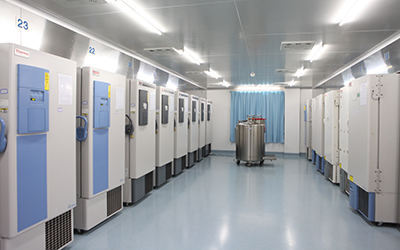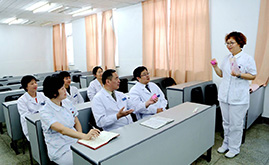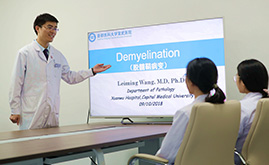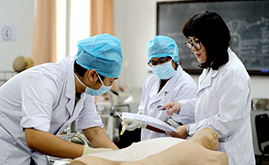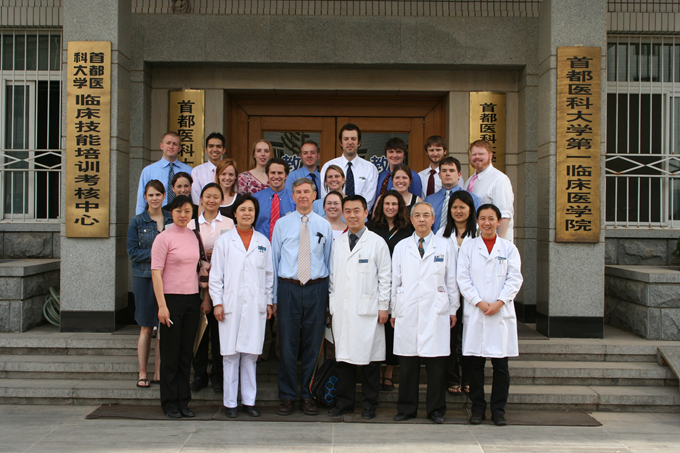The Institute of cerebrovascular diseases of Capital Medical University
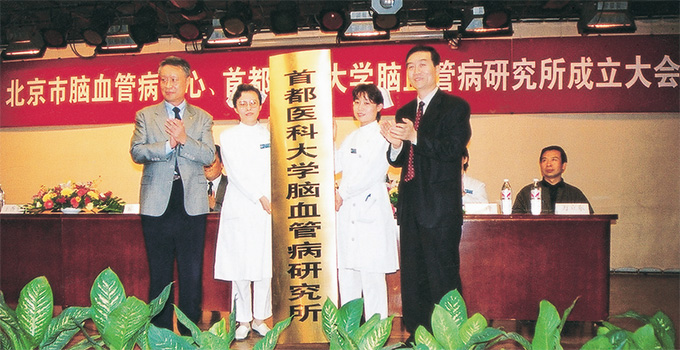
The Institute of cerebrovascular diseases of Capital Medical University was founded in 2001, and Professor Ling Feng was appointed as director. Since its beginning, the Institute has been devoting itself to the basic and clinical research of cerebrovascular diseases for more than 10 years. Relying on Xuanwu Hospital of Capital Medical University, one of the founding bases of Neurology in China, it integrates neurosurgery, neurology, interventional center, intensive care, rehabilitation medicine, radiology, ultrasound diagnosis, emergency department, cerebrovascular diseases research institute and other cerebrovascular disease related human resources and technical support, and has become a leading domestic medical research institutions.
The institute has been presiding over the national key projects on cerebrovascular diseases, 863 projects and the projects of the National Natural Science Foundation for many years. It has successively obtained many scientific research achievements, established the "Xuanwu Model for the Diagnosis and Treatment of Cerebrovascular Diseases", and trained a large number of senior personnel for the prevention and treatment of cerebrovascular diseases every year for the whole country, including a member of the National Science Fund for Distinguished Young Scholars, a member of the National Science Found for Excellent Youth, and a member of the Yangtze River Scholar. Moreover, it has trained a number of postdoctoral, doctoral and master's degrees.
In terms of basic research, the research team is pulling ahead all over the country in the following fields: the mechanism of hemorrhagic transformation in acute cerebral infarction, the establishment of animal models of severe carotid artery stenosis, and the conditioning protection and treatment of chronic cerebral ischemia.
The institute uses neurosurgery as a clinical base, owning about 120 beds, including 16 ICU beds. Based on microneurosurgery, interventional neuroradiology, neuronavigation and orientation technology, brain endoscopy technology and stereotactic radiotherapy equipment and technology, it is in the leading domestic level in cerebrovascular diseases, intracranial tumors, spinal cord tumors, skull base tumors, endoscopic surgery and so on. For hemorrhagic and ischemic encephalopathy and spinal cord vascular disease, the application of minimally invasive neurosurgery concepts and means to conduct comprehensive treatment has made a significant difference to maximize the recovery of nerve function in patients with minimal trauma. In addition, Yasagir Microneurosurgery Training Center, Sami Skull Base Surgery Training Center and Interventional Neuroradiology Training Center are also available. The "China Cerebrovascular Disease Forum" sponsored by the Department of Neurosurgery has become a platform for high-level communication between international neurosurgery. Moreover, the Chinese Journal of cerebrovascular diseases is a forum for the academic exchange of neurologist in China.
The institute maintains close ties with its counterparts both at home and abroad, and extensively cooperates with famous international universities such as Harvard University and Pittsburgh University. Through academic exchanges with experts at home and abroad, it constantly updates knowledge, introduces new technologies and methods and improves the level of diagnosis and treatment of cerebrovascular diseases.






